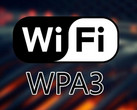The Internet Engineering Task Force (IETF) has decided that HTTP-over-QUIC will be the 'new' iteration of HTTP, or HTTP/3. This move will essentially replace the internet's transmission-control protocol (TCP) with Quick UDP Internet Connections (or QUIC). This move, which, as with HTTP/2, has seen heavy contribution from Google, may make transfers between 'senders' and 'receivers' (e.g. a PC and a server) more streamlined and efficient.
Therefore, HTTP/3 may bring subtle but significant changes to how the internet functions and behaves. TCP can be said to have been in place since the implementation of the internet. It is the basis of how online data gets to your device intact and accurate relative to how it left its origin. Modern-day HTTP also pairs it with Transport Layer Security (TLS) in moving requests to and from servers. However, QUIC's developers claims that it can supplant both TLS and TCP, while handling these interactions in about half the time.
Therefore, HTTP/3 could be perceived as stepping on TLS (and Secure Sockets Layer (SSL)), as well as the industry built up around the provision of such security levels. However, a contributor from hashedout asserts that the 'new HTTP' may merely result in the obligation to upgrade to TLS 1.3.
At present, about 120,000 top websites are estimated to have switched from HTTP/2 to /3. Time will tell if more widespread protocol upgrades will result in a snappier, more effective internet.









